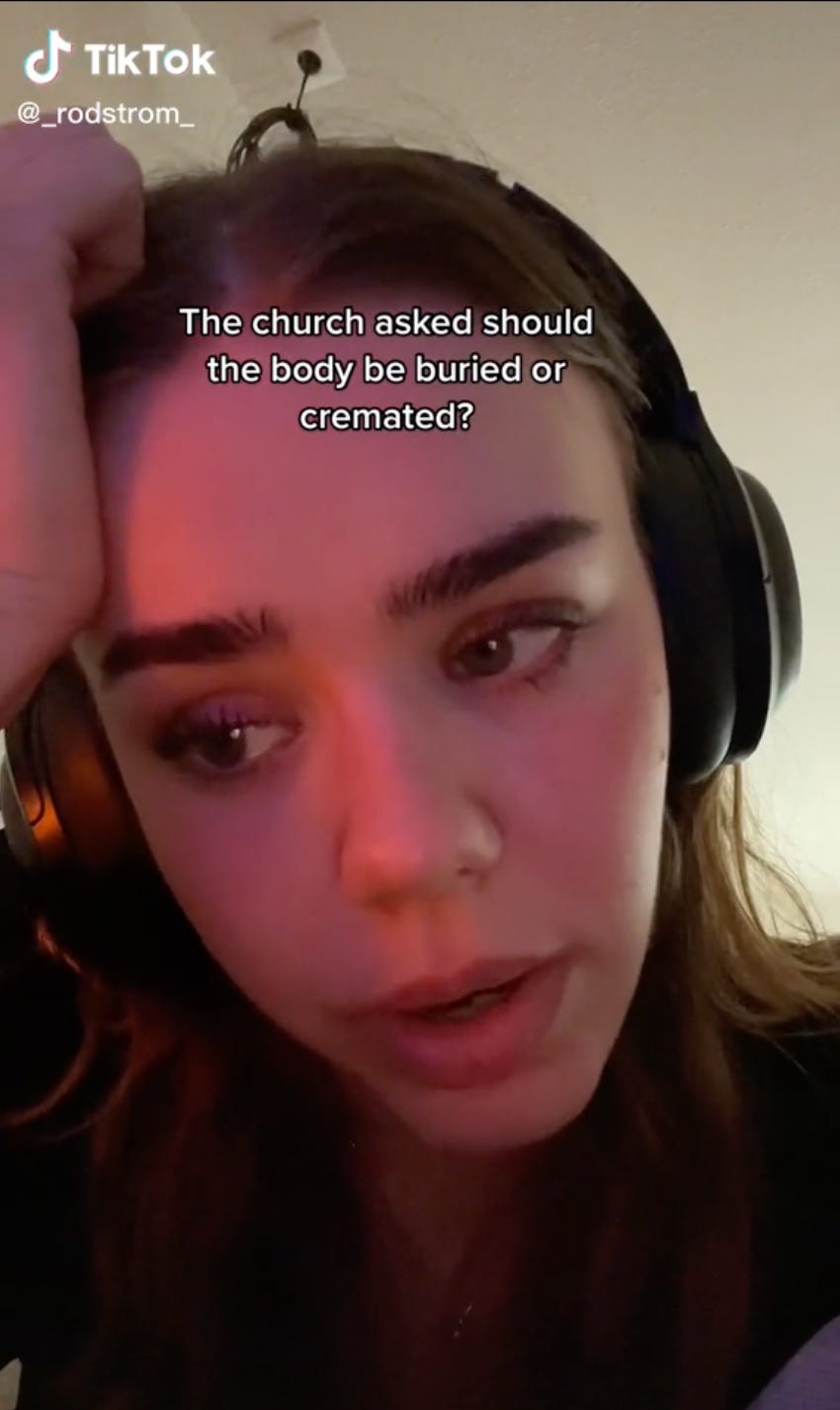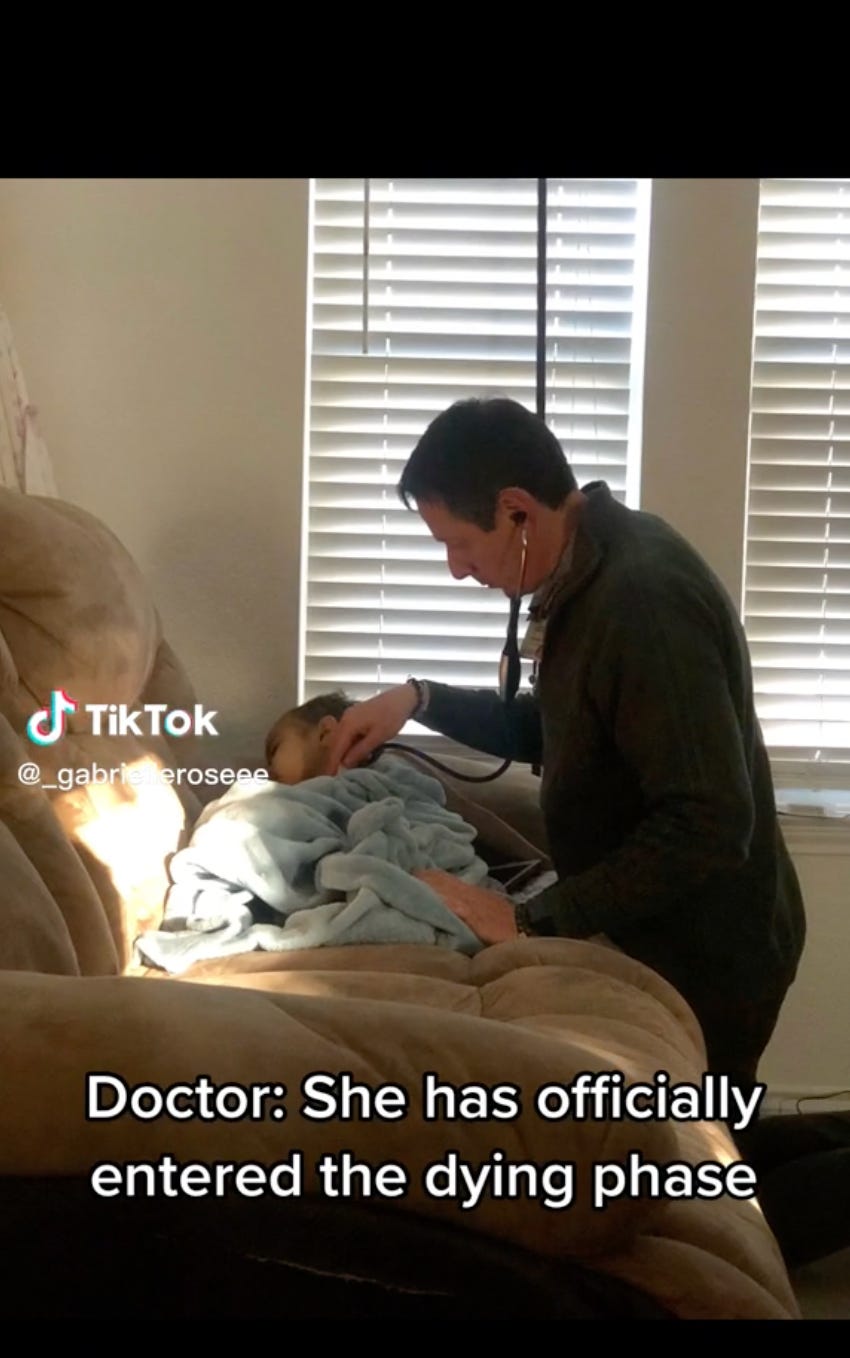In Bertrand Tavernier’s 1980 movie Death Watch, a guy working for a TV broadcaster is in charge of following a woman’s slow death from an untreatable sickness with a sophisticated camera system installed in his eyes. Without her knowing, his gaze is in fact the gaze of hundreds of thousands of spectators, consciously witnessing the woman’s journey towards death and impatiently waiting for the fatal, final moment. In a specific sequence, Roddy,—Harvey Keitel—the eye-camera operator, stops at a tavern and glimpses, on a tv screen, some images of the woman’s face he recorded just a few hours earlier. In the video, she glances at the observer with sincere tenderness, unaware that what’s in front of her is much more than just the non-mechanical gaze of a human being. His point of view has now been fed to the unsympathetic dudes who sit in front of the television, to their inquisitive comments and sadistic takes. There is nothing more wrong and pornographic than that now corrupted intimacy. Roddy watches the tv screen, but what does he see? The terrifying reality of a moment stripped of every emotion, chopped off and sold, annihilated and taken advantage of. What is, then, the meaning of those images? And what will become of them?
I listen to a TED Talk by Giovanni Ziccardi, an Italian Professor of Legal Informatics. He talks about how, if the past centuries were centered on the will to be remembered, the 2000s are definitely more concerned with the will to be forgotten: in Roman law—he says—the most dreaded penalty had the name of Damnatio memoriae, and consisted in the erasure of every trace or source regarding the condemned’s life. The sentenced's family name would no longer be inherited, and every painting and writing proving the existence of that person, destroyed. However, how many people—in contemporary times—wish to maintain their right to be forgotten? How many people would prefer all of the proofs of their existence in the digital realm—empty shells of what was once a perfectly curated online self-narrative—to be completely erased? Doesn't everybody deserve a right to be forgotten? Is there a possibility that someone, now gone, hasn’t thought enough about its digital heritage existing forever on the Internet, ready to be re-watched by someone else, forever? And isn’t there something very sadistic about the perpetual existence of online data?
I become interested in the work of Davide Sisto, a thanatologist: in one of his books, he confirms there are more than 50.000 of deceased users online, that about 33.000 Facebook users die every day, and that, by the end of the century, dead people’s instagram profiles will be way more than those of living people. He also writes that, because of that, a new Google service called Death Manager will allow everyone to leave a testament regarding what to do with personal online shared data after death. Most likely, in the future, this service will become a successful professional position on the rise, he says. You can choose: store everything in a drive, or delete everything—just like in Damnatio memoriae. But we all know how the Internet works, and for that we know that the latter option is nothing more than a naive illusion.
I continue to navigate the virtual ether in search of material about death and the internet. Films, essays, YouTube Videos, texts. I keep frantically consuming any kind of media. The truth is hidden in a personal situation which served as the real trigger; one I can’t hide to myself anymore: I don’t have the guts to unfollow my dead friend’s instagram profile.
I keep thinking: at first sight, it’s just as if nothing’s ever happened. All of the pictures, the selfies, the comments, the descriptions, the tagged photos, the direct messages. Visiting that url, everything pretty much looks the same. I keep revising our chats. Watching the highlights stories. Reading the messages left under the last published post, written as if people were talking to my friend directly. I pay attention to every detail. I do it at least once a month. But it’s been two years, and I just can’t seem to wrap my head about the idea of unfollowing that profile which is now nothing but a digital gravestone. In Real Life, we always know whenever we’re getting close to a cemetery: majestic entrances, flowers, rent costs going down. On the internet, we barely realize that much of the landscape we inhabit is, in fact, an endless graveyard. Since our virtual personas are already ghostly and immaterial, we don’t notice all of the real ghosts passing us by during our daily sojourns on the Web. On the Internet, we’re all ghosts. The state of our physical bodies is not actually relevant. As the deepest and most articulate source of our collective (digital) unconscious, one could argue that the Internet has completely replaced our memory. Does this mean that the Internet has erased death? Or has it only made it less visible?
But I keep going back to that instagram profile. I let my face break in a smirk of hilarity: I keep giving myself the simplistic explanation that I’m incapable of unfollowing the profile because, in my own twisted mind, it would feel like a matter of disrespect towards my friend and their past online activity. That possibility makes me smile in the most grotesque way possible. Then a second thought pops into my mind, and the fun absurdity suddenly evolves into bitterness. Is it just a matter of narcissism? Do I just want my name to be there in my friend’s virtual testament, for everyone to see, forever? Do I just want to be seen as someone who suffered in the eyes of some user who has casually stumbled upon the froze-in-time profile of a dead person? Do I just want other people to know that I WAS FRIEND with someone who doesn’t exist anymore? Does an “unfollow” mean I don’t want to be associated with my friend anymore?
Maybe, just like Roddy in Tavernier’s movie (or, more accurately, like the men watching his recordings on TV), I am in fact contributing to this sadistic theater I would like to distance myself from. My friend’s profile, stuck in time and space, always felt kind of immoral to me. But I had never ever before thought about my behavior as something just as immoral.
I start thinking that, maybe, real death can only be possible if aligned with the death of all of the dead person’s social media accounts, and therefore, that it is impossible to process a real life death through a profile which survives physical death. That's the thing: biological death never coincides with digital death. And I suspect my friend never really had the opportunity to come to terms with the idea of their digital immortality.
The non-coincidence between these two dimensions makes me think of a book I’ve read recently. Morel's invention, written in 1940 by argentinian author Adolfo Bioy Casares. In the novel, a man falls in love with a woman he thinks is completely real and made out of flesh, but who is actually nothing more than a projected image, and therefore cannot react or interact with him. The woman's image, he later discovers, is projected by a machine that runs on a massive supply of kinetic energy, and shows pictures (similar to holograms) of people who existed in the past, who knows how many years before. The man's destiny is deeply miserable: he has fallen in love with nothing more than an hologram, just a glimpse of a woman he'll never be able to meet. Her drama, however, is far more disturbing: her image is frozen in time, forced to show itself in the eyes of anyone who is there to watch the perpetual show destined to go on for eternity, unable to break the cycle and disappear forever. “The human right to be forgotten”.
Captured in my vortex of relentless research, media consumption and newly felt sense of guilt, I remember something that occurred to me just a few months ago, when my grandmother died. The day of the funeral, the local funeral home distributed a card with my grandma's picture and a QR code connecting to a website I had never heard of before. That was my first encounter with online obituaries: forums where, on a daily basis, both funeral homes and relatives of deceased people post obituaries that allow people far away to learn someone’s date of death or day of funeral. But it’s not only that: online obituaries are used to create blogs where everyone can commemorate a deceased one through comments, digital eulogies and different kinds of interactions.
Yes, greving can be a really hard time. A lot of the interactions I see, whatsoever, actually come from strangers who—being moved by a specific death announcement (whether by chance or due to factors such as the young age of the deceased)—choose to leave a comment showing their sadness in learning about the tragic event. On dignitymemorial.com, you can either "Click to light a candle" or "Add a memory," which can be left in the form of a written comment, a sticker, or a picture. All of the photos posted by users are then collected in a gallery that everyone can browse on each dead person's personal profile, which looks exactly like a weird posthumous social media account. But this time, it’s not a self-constructed-narrative: it’s a narration of your life made by other people, and it’s rooted in the fact that a deceased person cannot have control over it. That way, even when people choose not to have a social media profile in their lifetime, they might still be condemned to have one against their will—without the possibility to do anything about it.
An event I had heard about comes to my mind: after an incident causing the death of a teenage boy, his mother started posting on his Facebook profile talking in first person, like it was still her son clicking the “share” button to all of the posts. The posts would say things like: “I know you miss me. But I want you to know that I’m watching over every single one of you from above” and other stuff written with the aim of easing the pain of everyone reading. I started thinking about the problems that the impossibility of an ethical education in the digital realm might imply. How did the boy’s mom not see the problem in what she was doing? Is everything to be forgiven if caused by loss and mourning? Is it possible to educate ourselves to a new ethos of digital environments, and how hard is it? That sequence from Death Watch comes to my mind again. Images re-contextualized in order to create new meanings for everybody to see, exploiting someone who’s been condemned to silence, forever. I look up the hashtag #Grieftok on TikTok, and all of these little montages made by people using the internet to process their grief start filling up my screen.
I’ve pretty much listened to every musical project made by Sacramento-based industrial hip hop band Death Grips. Still, there’s a song which always struck me more than all of the other ones. One that I couldn’t stop replaying after listening to it for the first time. It’s called Artificial Death in The West, and it deals with some cryptic imagery about a nihilistic hyper technologic world where this “artificial death” occurs. The lyrics written by Death Grips’ singer MC Ride suggest an intense anxious feeling of one’s identity being ubiquitous and impossible to reach ("I’m barely there, I’m everywhere”), just like facing a mirror and discovering one’s immateriality (“My reflection, I wasn’t in it, in slow motion, I give in”).
Mobile shrine of this destitute wasteland/My star gate in a vacuum, monitor’s eye view, this valley is an urn, this valley I’m wading through.
The “mobile shrine” of a wasteland, of an indefinite valley MC Ride calls a “urn”: he’s wading across sanctuaries made for something turned to ash. He then goes to mention Stargates—fictional portals connecting two different spots in the universe invented by author Roland Emmerich while writing his sci-fi movie Stargate (1994). Thresholds bringing two very distant places close—zones light years away, beyond space and time, beyond cosmic energy, over the tangible and the otherworldly.
The song continues by exploring the semantic area of digital surveillance, suggesting a paranoia induced by a feeling of being chased by an ever-watching superior eye (“Monitor’s eye view/Feels like I’m chasing after me/Watching me, watching me, watch them watch me”). Something (or someone) observing everything without preserving any intimacy and therefore making the observed feel progressively more rarefied, questioning what its identity even is anymore and where it resides. Are we always being watched, and who is the one watching?
At the end of my exploration, I find myself thinking about the idea of Being, and about the idea of Being After Being Dead. I also find myself thinking about the way I’m curating my social media self-narration day by day. Do I agree with the idea of that being my eternal alter ego, my testament, what I leave behind me—do I feel okay with that being my immortal digital body? Is it my job to nourish it in a way I feel comfortable being replaced by it one day? I don’t really know if I want to think about it. Maybe one day I’ll know exactly what 's going to happen to all of my online data, after my time on earth has ended. Until then, I’ll continue to wander across the massive cemetery that social media has become—and will continue to be in the future—and I’ll give up on trying to unfollow my friend’s profile for good.
There’s one thing that I keep reminding myself, something you either experience or get exposed to after watching pretty much all of Michael Haneke movies non-stop (of course I’ve done both): the only way humankind knows how to deal with each other’s pain is through a pathological and sadistic attachment to its manifestation. Sometimes our human need for empathy, our natural need for emotions—such as love and grief—lead us to weird and controversial places. Yet, justifying this human condition by saying that we all are imperfect beings is not going to absolve us.
Tavernier’s Death Watch (La morte in diretta «Live-taped Death» in italian) is based on a 1973 sci-fi novel called The Unsleeping Eye. An eye which doesn’t sleep is a gaze which doesn’t rest, even if it should just shut in front of someone who’s destined to sleep for the rest of eternity.
We’ve continuously directed our paranoia towards what we always thought to be a restless «unsleeping» mechanical eye. But really, it never was. Instead, it’s always been our own.
References
Ziccardi G. (2017) TEDx Talk Memoria digitale, immortalità e oblio.
Sisto D. (2018) La morte si fa social.
Bioy Casares A. (1940), Morel’s Invention.
Bertrand Tavernier - Death Watch (1980)
Death Grips - Artificial Death in The West (2012)









This is really beautifully written and love this topic. Some years ago I wrote something similar thinking about my dead brother’s Facebook account: https://reallifemag.com/the-great-beyond/
A really fantastic essay. I found it very instructive to approach the subject of death and our digital selves using examples in film.
By coincidence I reviewed a book called Death Glitch by Tamara Kneese which approaches the subject of death from the perspective of tech design (or rather lack of it), memorialisation and the temporality of platforms. Ironically so many digital memorial startups end up folding after a few years.
https://open.substack.com/pub/uxmichaelco/p/first-2-death-glitch?r=2fkik0&utm_medium=ios&utm_campaign=post